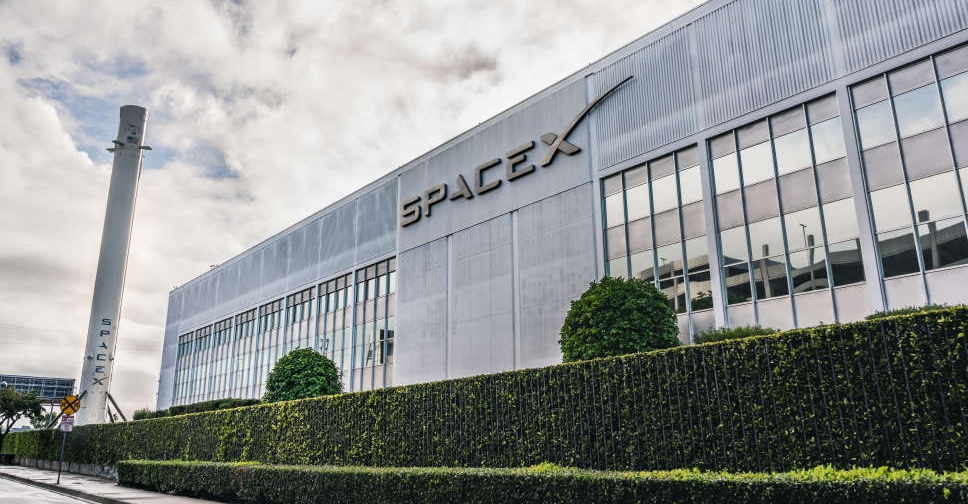
SpaceX's towering Super Heavy booster, one half of the company's Starship rocket system, briefly roared to life for the first time on Thursday in a test-firing that puts the behemoth moon and Mars vehicle closer to its first orbital flight in the coming months.
Thirty-one of the Super Heavy's 33 Raptor rocket engines fired for roughly 10 seconds at SpaceX's facilities in Boca Chica, Texas, the company's chief executive, Elon Musk, tweeted shortly after the test, shown during a livestream.
"Team turned off 1 engine just before start & 1 stopped itself, so 31 engines fired overall," Musk tweeted. "But still enough engines to reach orbit!"
The engines were ignited in a roar of orange flames and billowing clouds of vapor while the 23-story-tall rocket remained bolted in place vertically atop a platform adjacent to a launch tower.
When mated to its upper-stage Starship spacecraft, the entire vehicle will stand taller than the Statue of Liberty at 120 meters high, forming the centerpiece of Musk's ambitions to eventually colonize Mars. But plans call for it to first play a leading role in NASA's renewed human exploration of the moon.
It was unclear whether SpaceX will decide to conduct another static-fire test of the Super Heavy, with all 33 engines, before the company attempts to launch the powerful, next-generation rocket for the first time in an uncrewed flight to space.
That launch, a test mission lifting off from Texas and landing off the coast of Hawaii, could happen "in the next month or so," SpaceX President Gwynne Shotwell told a conference on Wednesday, though the exact flight date hinged on the outcome of Thursday's static fire test.
"Keep in mind, this first one is really a test flight," Shotwell said. "The real goal is to not blow up the launch pad, that is success."
A previous test firing of a Super Heavy booster in July of 2022 ended with the vehicle's engine section exploding in flames. Before that, SpaceX had test-launched Starship's top half in several "hop" flights to an altitude of roughly 6 miles to demonstrate that rocket's landing abilities. All but one crashed.
Thursday's test-firing of the 31 Raptor engines appeared to set a new record for the most thrust ever produced by a single rocket - roughly 17 million pounds compared with 10.5 million pounds for the Russian N1, and 8 million pounds for NASA's Space Launch System rocket, livestream commentators for the space media group NASA Spaceflight said. They said it also marked the most rocket engines ever fired simultaneously, exceeding the 30 engines of the N1.
Moreover, Super Heavy's 33 engines will far surpass the thrust from the first stage of the Saturn V, the storied NASA rocket that sent humans to the moon during the Apollo program of the 1960s and '70s.
Starship's development is funded partially by a $3 billion contract from NASA, which plans to use the SpaceX rocket in the next several years to land the first crew of astronauts on the moon since 1972, as part of the U.S. space agency's multibillion-dollar Artemis program.
On Wednesday, NASA engineers in Mississippi test-fired a redesigned version of the agency's own rocket engines, the Aerojet Rocketdyne-built RS-25, which will power the SLS on future flights.
SLS and Starship are the two spacecraft currently at the forefront of the Artemis program, which NASA said is aimed at establishing a permanent base on the moon as a stepping stone to human exploration of Mars.




 Nasdaq set to confirm bear market as Trump tariffs trigger recession fears
Nasdaq set to confirm bear market as Trump tariffs trigger recession fears
 Dana Gas and Crescent Petroleum exceed 500M boe in Khor Mor field
Dana Gas and Crescent Petroleum exceed 500M boe in Khor Mor field
 China to impose tariffs of 34% on all US goods
China to impose tariffs of 34% on all US goods
 Shares bruised, dollar crumbles as Trump tariffs stir recession fears
Shares bruised, dollar crumbles as Trump tariffs stir recession fears




